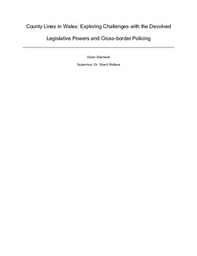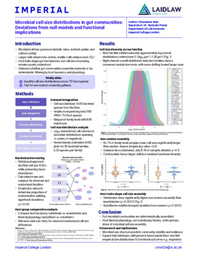Research Project Proposal

Background:
Narrative Medicine is an emerging interdisciplinary field devoted to honoring the role of the story in medicine. The notion that the patient is at the center of medical care is key to its ideology: Only by valuing and enshrining patients’ stories as their own unique experiences, perspectives, and narratives, can healthcare providers begin to listen actively to patients, engage with their emotions, and collaborate with them in decision-making processes to offer better care. Centered at the intersection of humanities, clinical practice and health care justice, the field also emphasizes that providers examine their own experiences and biases, helping them develop critical self-awareness and narrative competence in order to understand patients' stories more effectively. In recognizing the power of storytelling to augment healing, empathy, and understanding in healthcare, narrative techniques are integrated into clinical practice, humanizing medicine and improving both patient care and provider understanding. This allows for large scale progress in the healthcare system in terms of mitigating the impact of disparities and ameliorating the patient experience.
Research Question and Methodology:
I am currently working on a project involving the practice of narrative medicine under the mentorship of Professor Maura Spiegel, founder and Co-Director of the Columbia University Irving Medical Center Division of Narrative Medicine and Professor of English and Comparative Literature at Columbia. My research seeks to elucidate the ways in which disease and illness are communicated---both implicitly and explicitly---and how that shapes the health care experience from both the patient and physician perspective. To do this, I am applying narrative medicine close reading skills to memoirs by patients and providers to explore the complexity of expression and values of narrative medicine in terms of narrative co-construction, illness as an identity, hermeneutics, narrative agency, and the structures that produce one's healthcare experience in connection to writing. This research includes a literature review of two illness narratives and two physician narratives (spanning different backgrounds) and an in depth examination of themes that emerge from these different perspectives, as well as creative self reflection of my own experiences in health care. The narratives being analyzed are, "Your Hearts, Your Scars" by Adina Talve-Goodman, "Intoxicated by My Illness and Other Writings on Life and Death" by Anatole Broyard, "What Patients Say, What Doctors Hear" by Danielle Ofri and "Letters to a Young Doctor" by Richard Selzer. These narratives will be close read through the lens of identity and role of logical reductions, chronotopes, and intersubjective relations. While significant work has been done on analyzing illness and provider narratives separately, my research aims to look at them in tandem and draw conclusions on such bi-directional communication.
The first half of my research project thus far has consisted of workshops with Professor Spiegel to understand key literary concepts and ideologies that characterize narrative medicine. We have worked through the textbook she helped create, "The Principles and Practice of Narrative Medicine" and have performed literature reviews on emerging theoretical pieces. Together, we also analyzed important works of fiction with a narrative medicine lens, giving me a proper background of the nuances of the field before pursuing this independent project.
Objectives:
This research project will allow for greater understanding of the emotional aspect of healthcare, including the way patients contextualize their treatment and the way providers make sense of their experience and patient interactions. By examining commonalities in the ways physicians and patients interact with each other via the vessel of writing and literature, changes in approach to care and conceptualization of clinical conversations can be made. Such research not only helps providers offer better healthcare and further understand themselves in a professional context, but supports the creation of initiatives aimed at illuminating a patient's full story. The 'parallel chart' is one such narrative medicine tool in which physicians write about their patients lives and backgrounds, as stories, separate from the purely clinical HPI (history of present illness) seen in most medical charts. Studies have found that through parallel charting and broadening the context in which providers view patients, outcomes of treatment plans are improved, along with the doctor-patient relationship. Initiatives like the VA's, "My Life, My Story" have taken this idea of a parallel chart and incorporated it as part of patients' official medical records. My research draws on the same underpinnings as this initiative: Looking at the "parallel chart," as a concept-- the unspoken and non-clinical impressions--in order to gauge a better understanding of the multifaceted and complex aspects of the healthcare experience. My research will thus serve as a resource to broaden understanding on the importance of narrative medicine as a whole and utilize the field's framework to better understand, and improve, the doctor-patient relationship.
With this in mind, my research on the communication between patients and doctors through their narratives can have many practical implementations. These can include a survey asking patients what they wish their doctor knew/would have known, a proposal for implementing parallel charting in clinical care, and instituting narrative medicine workshops for providers. I hope to begin to institute such initiatives in my community.





Please sign in
If you are a registered user on Laidlaw Scholars Network, please sign in